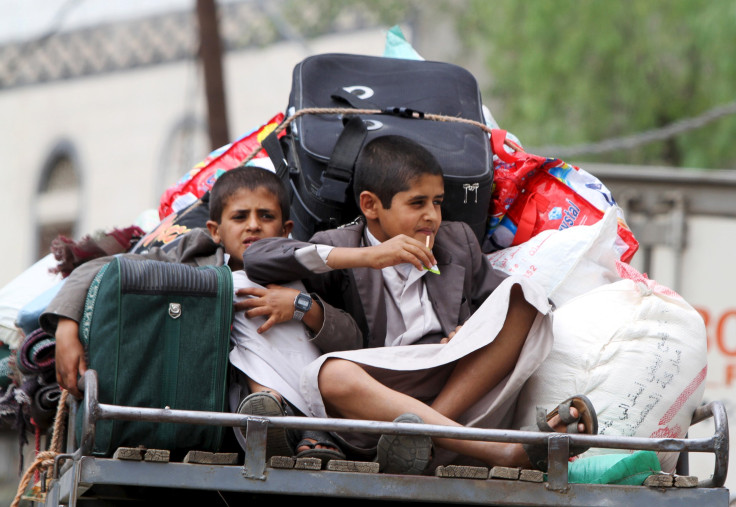Aid Groups In Yemen Lead Humanitarian Response, With Little Help

ISTANBUL -- For the first time since a Saudi Arabian-led coalition launched an airstrike campaign in Yemen two weeks ago, international aid groups flew into the country Tuesday and Wednesday to deliver medical supplies, food and water to people trapped in the fighting. But those flights might not be able to continue, aid groups say.
Until Tuesday, the coalition had closed all airports and seaports, and with increased fighting in Sanaa, the Yemeni capital, on Wednesday, the coalition is likely to block any more humanitarian-aid flights from entering this week. Relief workers say if the coalition does not open reliable pathways into the country, the lack of aid in Yemen could soon cause a crisis on the same scale as that in Syria, which has created around 3 million refugees.
The Red Cross was the first aid organization to land planes in Yemen on Tuesday. It delivered 17 tons of medical supplies. The Saudi-led coalition cleared the flights into Yemen earlier this week. So far no other aid groups have been able to land.
"We urgently need an immediate halt to the fighting, to allow families in the worst affected areas, such as Aden, to venture out to get food and water, or to seek medical care," Robert Mardini, head of Near and Middle East operations for the International Committee of the Red Cross, said in a statement. "Our relief supplies and surgical personnel must be allowed to enter the country and safely reach the worst-affected places to provide help. Otherwise, put starkly, many more people will die."
In #Yemen, "Our pharmacy stock is starting to run out & we are in desperate need medical supplies." http://t.co/SPKGnIb4dR
— Doctors w/o Borders (@MSF_USA) April 7, 2015As early as Tuesday residents of Sanaa told International Business Times that they were running out of food and water and that they were looking for alternative ways to get help, including fleeing the country.
But for many people, fleeing is not an option. The boat ride to neighboring countries is often perilous, and the roads out of the country are blocked. Their only option is to stay in their homes and hope the Saudi-led airstrike campaign slows enough to allow a long-term path for aid groups to get into the country.
But the bombing in Yemen is not slowing down. On Wednesday, Reuters reported that the U.S. was ramping up its support to the Saudis. Humanitarian organizations have made several pleas to both sides of the conflict to cease fighting to allow aid groups to make deliveries to Yemenis. All pleas have gone unanswered.
Yemen's Ministry of Health and Population reported that more than 1,000 people have died in the fighting and about 3,700 have been injured. The ministry also said that about 8,700 people have been displaced within Yemen. United Nations estimates are vastly different, with a death toll of 549 on Tuesday. Neither group has clear numbers on how many people have been able to flee. Various aid groups on the ground, including the International Organization on Migration and the Red Cross, have said they are helping Yemenis board ships to Djibouti and Somalia.
The Saudi-led coalition allowed several commercial airlines to enter in order to assist in evacuations. Air India planes landed in Sanaa and transported thousands of Indian citizens out of Yemen. Others were rescued by boats that departed from Djibouti. Russia and China also transported hundreds of their citizens.
The U.S. is among 26 countries currently asking India to help their citizens leave Yemen. In a news briefing Tuesday the U.S. State Department said it was not planning on leading its own evacuation effort in Yemen, but would instead rely on external help.
"The ones that we are aware of are overwhelmingly dual citizens. But again, we don’t have a good count for how many there are just because there’s no way to do this," said Marie Harf, a spokeswoman for the State Department. "Each individual needs to assess their security situation and determine whether it’s better to shelter in place or try and take advantage of one of these other opportunities that we are alerting people to."
© Copyright IBTimes 2024. All rights reserved.





















